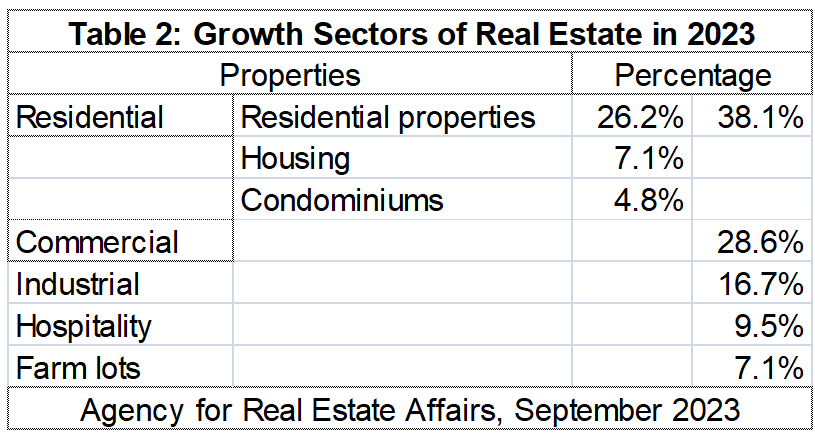Real Estate Industry in the Philippines - Opportunities and ChallengesIn recent years, the Philippine real estate industry has experienced rapid development. As one of the main drivers of the nation’s economic growth, real estate provides employment opportunities and an income stream to many Filipinos.
However, developers and property owners should know the challenges they may face before investing in real estate. To help you out, we’ve listed the opportunities and challenges in the Philippine real estate market, so read on. Opportunities High Demand for Affordable Housing One of the opportunities why you should invest in the Philippine real estate industry is the high demand for affordable housing. The continuous urbanization in the country led to the increasing demand for low-cost housing projects. Nonetheless, there’s a lack of economical housing in the country. That’s why developers who can handle and take advantage of this opportunity have a high chance of succeeding. Expansion of the BPO Sector In 2019, the Business Process Outsourcing (BPO) sector employed around 1.3 million Filipinos, growing by 8% to 10% annually. As the BPO sector continuously expands, the demand for office space also increases. The Philippines became a center for BPO companies, thanks to the competitive costs, beneficial environment for business, and knowledgeable and highly skilled workers. Thus, real estate developers should grab this opportunity by creating more office space. Growing Tourism Industry While tourism took a step back during the pandemic, the industry experienced significant growth in the past few years. Dubbed the “Pearl of the Orient Seas,” many tourists love the Philippines for its natural and picturesque landscapes, deep history, rich culture, and hospitable people. So, it’s no surprise that the Philippines attracts millions of tourists yearly. Whether you're a developer or entrepreneur, investing in the Philippine real estate market will generate long-term revenue. From hotels and resorts to condos and rental homes, these are some tourism-related infrastructures where you can invest your money. Rising Number of OFWs Apart from that, the rising number of Overseas Filipino Workers (OFWs) contributed a lot to the real estate market of the Philippines. Many OFWs are investing in real estate for their families or as a source of income, resulting in the increasing demand for vacation homes and rental properties. So, if you're planning to invest in the Philippine real estate industry, providing properties that cater to the needs of OFWs is expected to be successful. Challenges Competitive Market Like any other business, competition is an inevitable challenge that potential investors will face. Since many established developers and newcomers compete for a share of the Philippine real estate market, it will be difficult for novices or small-scale competitors to obtain a foothold. On the contrary, competition is common in profitable sectors, so knowing how to deal with it is vital. Insufficient Option for Affordable Financing Investing in real estate requires substantial capital. That’s why many developers look for economical financing to join the market. However, the Philippines offers insufficient options for affordable financing, making it more difficult for developers to obtain the required funds and invest in the market. Unlike established players, smaller developers often experience insufficient affordable financing options. Complicated Process to Obtain Property Titles Many developers experience complicated and time-consuming processes to obtain property titles. It is one of the reasons real estate developers can't proceed and efficiently facilitate their projects, causing delays and additional costs. Thus, real estate developers and investors should consider this problem before investing. Problems with Developing Infrastructure Infrastructure development affects the real estate industry, from public transportation to roads and bridges. But in the Philippines, developing infrastructure has always been slow and inconsistent. Many areas also don't have essential infrastructure to bolster real estate development. Hence, developers have to collaborate with the government to address this issue. Conclusion In summary, the Philippine real estate industry provides significant profit to developers and investors, given they acknowledge the opportunities and challenges in the market. Furthermore, addressing these challenges is possible by cooperating with the government and private sectors. Investors are also encouraged to look for alternative financing options to facilitate the project completion. By doing so, real estate developers and investors will most likely enjoy lucrative rewards in the long run.
0 Comments
Leave a Reply. |
Archives
July 2024
Categories
All
|
Hi! Welcome to our website. Having an agent/broker on your real estate search is a gift because with or without them the price of the property is always the same. They give you FREE SERVICE and only pure service. On your part, everything is to gain. Claim your gift now! :)
meet your Real estate Broker Partner:
Roman Joe Anoso, RN, REB
Real estate Broker PRC license number: 19887
HLURB registration number: CAR-B-05/21-029
HLURB registration number: CAR-B-05/21-029
Roman joe Anoso is a multi-awarded real estate broker, consistent Top #1 for 8 years to date, being recognized by the following companies:
Suntrust Properties, Inc.
- Overall Nationwide Top # 1 Real estate broker year 2018:
Vista Residences, Inc.
- Overall Nationwide Top # 1 Real estate broker year 2017:
Goshen Land capital, inc.
- Overall Nationwide Top # 1 Real estate broker year 2011 to 2016:
Suntrust Properties, Inc.
- Overall Nationwide Top # 1 Real estate broker year 2018:
Vista Residences, Inc.
- Overall Nationwide Top # 1 Real estate broker year 2017:
Goshen Land capital, inc.
- Overall Nationwide Top # 1 Real estate broker year 2011 to 2016:
office address: REALS Corporation, Barangay Dontogan, Baguio city, 2600
personal: +63917-5645-863
viber/whatsapp: +63917-5645-863
add him on facebook (CLICK HERE)
office landline: 074-442-2353 (for clearer conversation)
email: [email protected]
skype: romankat2
website: www.realestatebaguio.com
personal: +63917-5645-863
viber/whatsapp: +63917-5645-863
add him on facebook (CLICK HERE)
office landline: 074-442-2353 (for clearer conversation)
email: [email protected]
skype: romankat2
website: www.realestatebaguio.com
official Real Estate Brokerage Website of REALS Corporation
for our affiliate program CLICK HERE
for our affiliate program CLICK HERE


 RSS Feed
RSS Feed




